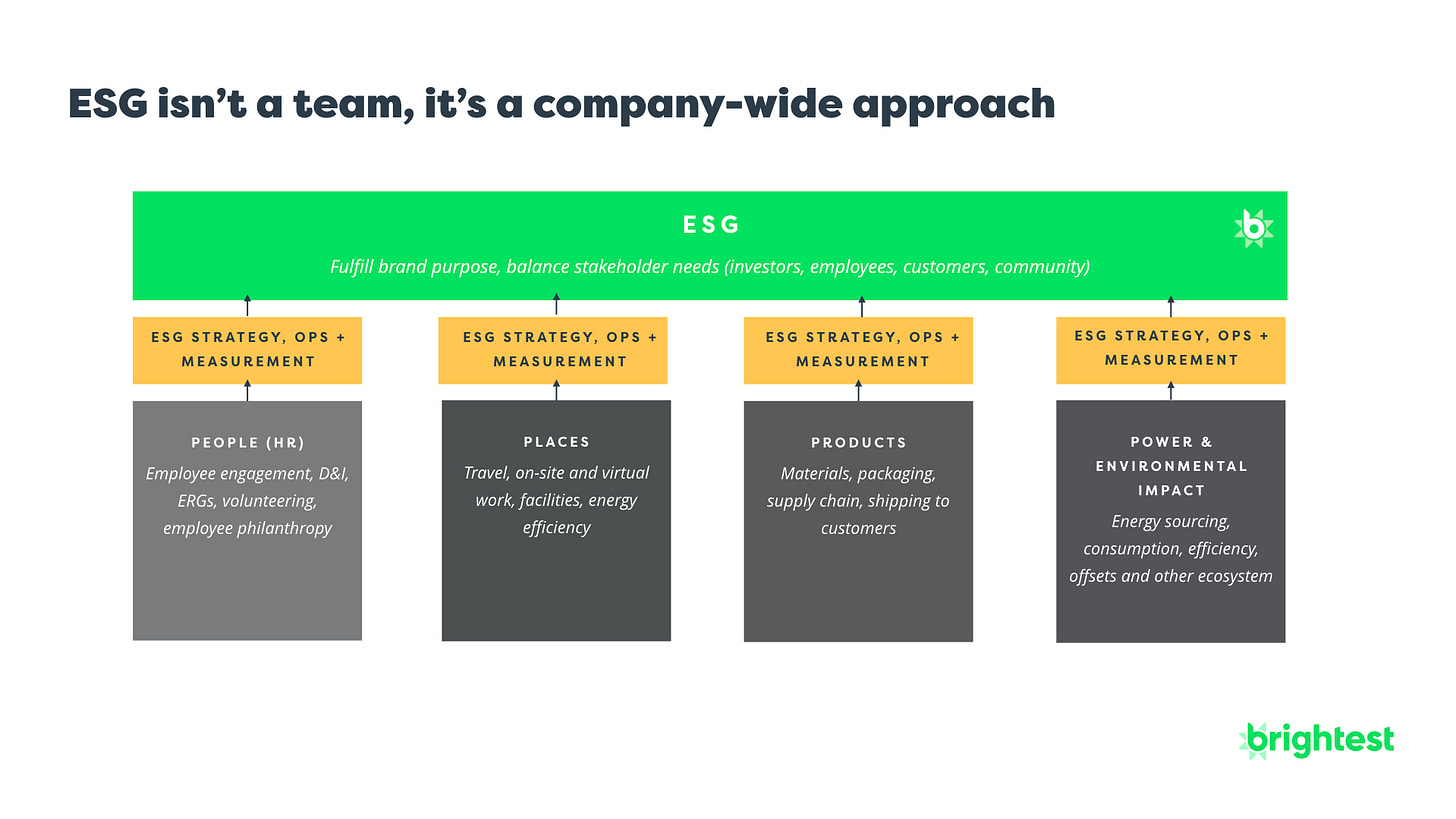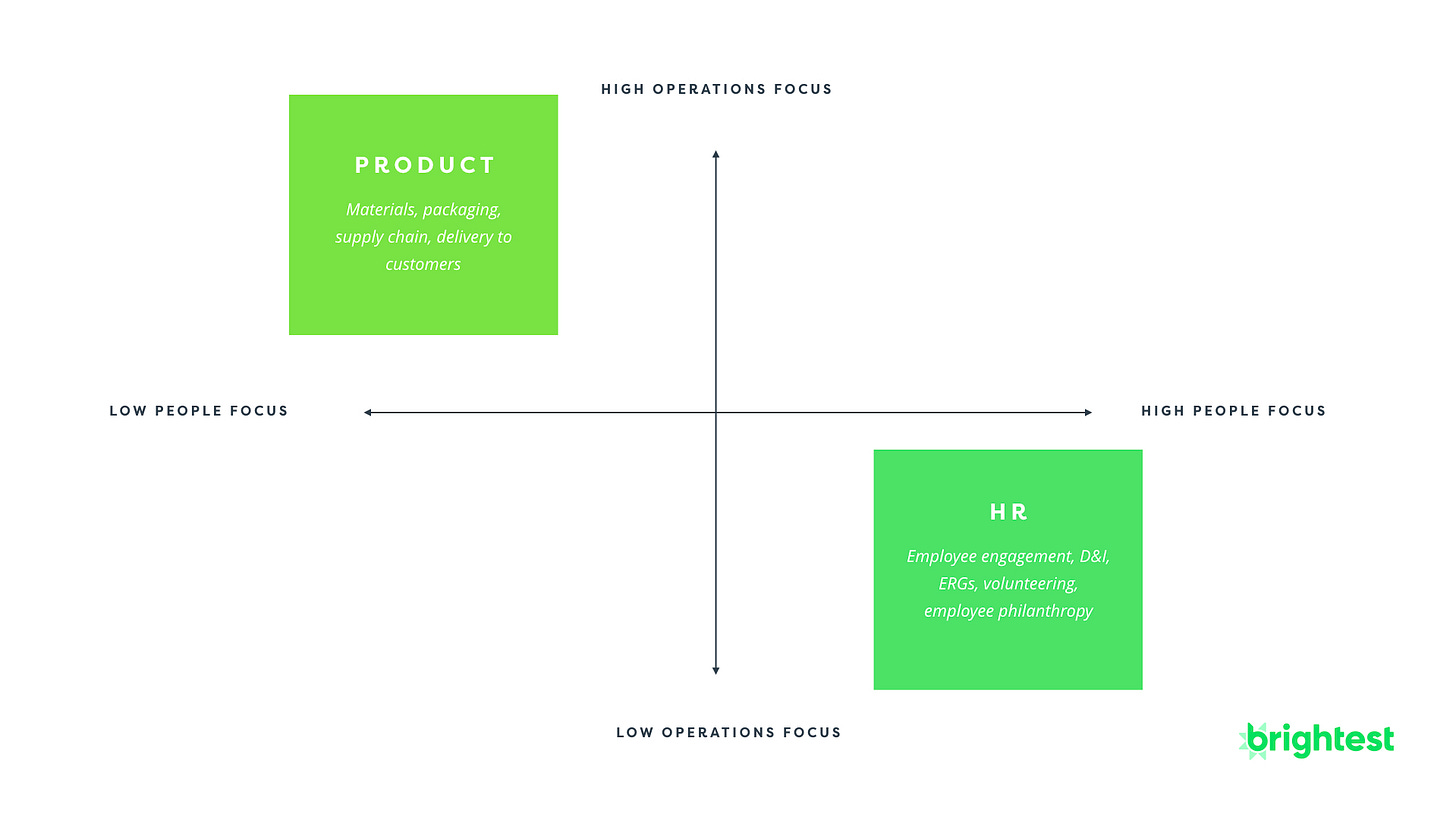This Week in Sustainability
In recent years, climate and racial justice have emerged as two of the strongest thematic change movements at the intersection of economics and culture. Governments, companies, and other institutions now face twin action imperatives:
1. Organizations need to take big strides in diversity and inclusion, while reducing systemic or institutional bias and inequality
2. Our current economic trajectory is environmentally unsustainable, and needs to be re-imagined and re-engineered at scale to protect humanity’s future
From JP Morgan Chase and Delta Airlines to Johnson & Johnson and game-developer Activision Blizzard, climate and diversity resolutions are receiving more board, executive, and shareholder attention in 2020 than ever before.
But while these interconnected themes top brands and leaders’ environment, social, and governance (ESG) or “social impact” priorities, implementation is far less unified (and often quite a bit more messy) at the ground level.
Part of the problem many organizations face in their shift from aspiration to action is their own team structure relative to the breadth and scope of these changes.
When social media emerged in the mid-to-late 2000’s, it cut across organizations in new ways. Marketing’s using it to grow the brand and promote new products. Customer service needs to respond to complaints on Twitter. HR’s using LinkedIn to hire and recruit. Social media doesn’t fit inside a single office: social media is something the entire organization becomes a part of.
Whether you call it sustainability, social impact, social responsibility, climate, or something else, ESG is a social media-scale shift. The same way every part of a company became conversational, today every part of a company’s become accountable. And because of external pressures - governments, investors, customers, employees, the physics of climate change - ESG is happening to your organization whether you’re ready for it or not.
But while these interconnected themes top brands and leaders’ environment, social, and governance (ESG) or “social impact” priorities, implementation is far less unified (and often quite a bit more messy) at the ground level.

You can be proactive about ESG, resource it, and set clear roadmaps, goals, metrics, and milestones. Or you can be reactive to news cycles, climate risks, shareholder resolutions, and employee organizing. Either way, ESG is here.
But this creates challenges for traditionally structured (and resourced) organizations. Diversity work is people-centric, so it’s typically led by HR. Sustainability and climate aren’t, so new teams and tools are necessary (and existing product, supply chain, and operations teams need to be expanded and up-skilled).

Operational ESG needs to bridge these gaps - or, at least, connect the dots.
And just like social media reshaped or introduced new measurement needs like digital engagement, share of voice, and sentiment, social impact is doing the same. According to the Sustainable Accounting Standards Board (SASB), 279 global companies now formally report using SASB standards, a 136% year-over-year jump from the 118 who released a SASB-informed report in 2019. B Corp registrations are similarly on the rise.
In the early days of social, you often found one junior employee (or even an intern) managing a Twitter handle and a Facebook page. Today, digital commands meaningful budget, headcount, and consideration space inside organizations.
Social impact and sustainability look poised to follow a similar growth and maturity cycle inside organizations. Today’s junior associate or intern is tomorrow’s sustainability leader. This year’s individual contributor is next year’s department head.
Social and digital came at companies fast and profoundly reshaped how they work. Here’s hoping climate and racial justice do the same: we need them to.
This Week in Sustainability is a weekly email from Brightest (and friends) about sustainability and climate strategy. If you’ve enjoyed this piece, please consider forwarding it to a friend or teammate. If we can be helpful to you or your organization’s sustainability journey, please be in touch.





